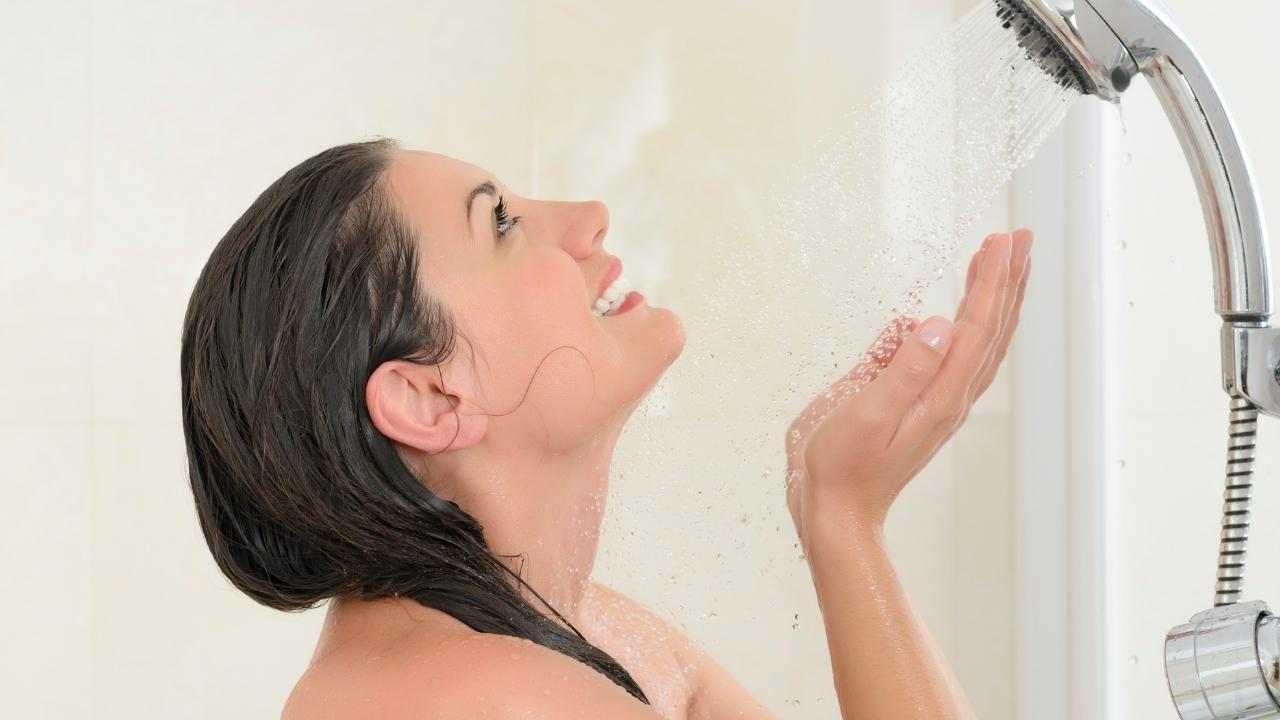You have not yet added any article to your bookmarks!

Join 10k+ people to get notified about new posts, news and tips.
Do not worry we don't spam!

Post by : Mikael Ariff
As temperatures drop, many bask in the warmth of a long, hot shower. It feels luxurious and comforting, especially on chilly mornings. However, the truth is that this soothing ritual might be inadvertently damaging your skin.
Dermatologists warn that one prevalent winter habit—taking excessively hot showers—can strip your skin of its essential oils, compromise its defenses, and leave it feeling parched, irritated, or itchy. Let’s delve into how this occurs and how to keep your skin healthy this winter.
Your skin has a natural protective barrier, comprised of oils, proteins, and fats, that retains moisture and fends off harmful external factors. However, cold weather can weaken this barrier due to:
Low humidity in cold air draws moisture from your skin.
Indoor heating exacerbates dryness, further robbing your skin of moisture.
Wind exposure accelerates the loss of natural oils.
By the time you step into a hot shower, your skin is already thirsty, and hot water can amplify the issue.
A hot shower might feel soothing after being outside, yet it can actually strip your skin of vital hydration.
Here’s what occurs:
Removal of Natural Oils
Your skin creates oils that keep it hydrated. Hot showers wash these away, leading to dryness and roughness.
Increased Moisture Loss
Hot water expands your pores, allowing moisture to escape quickly. Your skin might feel soft in the shower, but that doesn't last once you exit.
Weakening of Skin Barrier
Insufficient oils mean that your skin cannot defend itself effectively, leading to increased sensitivity, redness, and potential eczema.
Delayed Damage
Because hot water is pleasant, you may not realize the dryness until some hours later, when your skin begins to feel tight or itchy.
If you frequently indulge in long, hot showers, watch for these signs:
Your skin feels tight or rough post-shower.
Dry patches or flakiness appear on your arms and legs.
You notice itchiness during the night.
Winter exacerbates eczema or psoriasis.
Your skin appears dull and lacks luster.
These signs indicate it's time for a change in your shower habits.
While hot showers can relax your muscles and boost blood circulation, they simultaneously compromise your skin's moisture barrier.
This leads to a paradox where you temporarily feel warm and relaxed, but your skin's health deteriorates over time.
Fortunately, you don't have to forgo the pleasure of a shower; just implement some smarter habits:
Opt for Lukewarm Water
Ensure your water temperature is warm but not hot enough to redden your skin.
Limit Shower Duration
Limit showers to 10 minutes at most to prevent excessive moisture loss.
Select Gentle Cleansers
Use products designed for dry or sensitive skin, steering clear of harsh additives.
Moisturize Immediately
Apply lotion or cream within two minutes of showering; this helps lock in moisture.
Go for Rich Creams
Switch to thicker creams containing shea butter, ceramides, or glycerin during winter.
Incorporate Humidity Indoors
Using a humidifier can assist in maintaining skin hydration.
Choose Soft Fabrics
Wear cotton or gentle materials after your shower to avoid irritating your skin.
Weekly Exfoliation helps shed dead skin, but do so gently.
Stay Hydrated and eat lots of Omega-3 rich foods such as fish and nuts.
Always Use Sunscreen, even on cloudy days; UV rays can harm your skin.
For those living in dry areas like Dubai, winter may feel mild, but the air can still be very dehydrating. With many opting for hot showers, skin hydration may suffer even more.
Adapting your shower habits carries significant importance to keep your skin healthy all year long.
While hot showers seem indulgent, they can be detrimental during colder months. The solution?
👉 Enjoy shorter, lukewarm showers and moisturize promptly afterward.This simple adjustment can greatly enhance the appearance and feel of your skin during the winter months.
Q1. How hot should shower water be?
If it reddens your skin or creates excessive steam, it’s too hot. Aim for lukewarm water.
Q2. When should I moisturize after a shower?
Within two minutes is optimal for locking in moisture.
Q3. What kind of moisturizer is best?
Look for lotions with ceramides, glycerin, or shea butter to fortify your skin barrier.
Q4. Is it okay to shower twice daily in winter?
Yes, but keep them brief and use warm water, always moisturizing afterward.
Q5. Why do I itch post-hot shower?
This indicates dryness. Hot water can strip your natural oils. Lower the temperature and moisturize right away.
Enjoying a warm shower on a winter’s day is delightful, but your skin needs dedicated care. By lowering the water temperature, limiting shower duration, and applying moisturizer promptly, you can achieve both comfort and glowing skin throughout winter.
This article serves informational purposes only and is not a replacement for professional medical advice. For ongoing dryness, irritation, or skin conditions like eczema or psoriasis, please reach out to a qualified dermatologist for personalized support. Skin needs can vary based on individual health, climate, and lifestyle.










More Than a Ticket Out: How IPOs Are Redefining Value for Startups and Investors
In the evolving startup ecosystem, initial public offerings (IPOs) have emerged as far more than exi

Study Warns Using AI for Medical Advice Is ‘Dangerous’ as Users Get Inaccurate Health Guidance
A major new study reveals that artificial intelligence (AI) chatbots and tools may give misleading o

Top Sci-Fi Movies Streaming on Netflix This February: Must-Watch Picks for Genre Fans
A curated news-style guide to the best science fiction films currently available on Netflix in Febru

BCCI Central Contracts Shake-Up: Kohli, Rohit Moved to Grade B as Board Reshapes 2025–26 List
Virat Kohli and Rohit Sharma have been placed in Grade B in the BCCI’s 2025–26 central contract list

Dalal Street Spotlight: Top 10 Stocks Investors Are Watching as Markets Open on a High
Indian stock markets begin the week with strong momentum, and several blue-chip and mid-cap stocks a

Market Movers Today: Key Stocks Set To Watch In Indian Markets
Indian equity markets are poised for active trading as several major companies, including Bharti Air